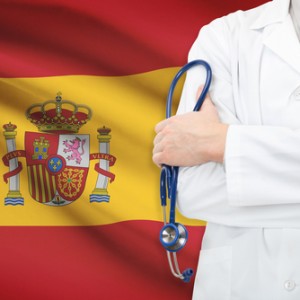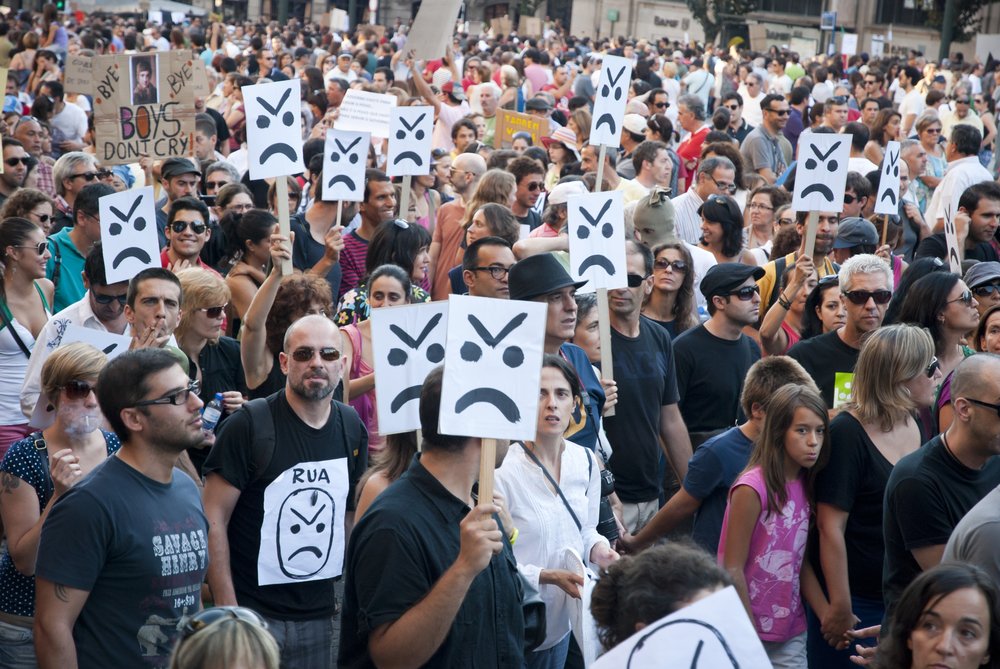 Hundreds of hepatitis C patients and respective supporters protested in Madrid last December, complaining about the cuts in public spending that have significantly reduced public access to Sovaldi (sofosbuvir), a novel drug that could treat and cure this deadly liver disease for hundreds of Spanish citizens. Those infected with the virus occupied a Hospital in Southern Madrid for a week, where they demanded the government to authorize physicians to prescribe the drug more commonly.
Hundreds of hepatitis C patients and respective supporters protested in Madrid last December, complaining about the cuts in public spending that have significantly reduced public access to Sovaldi (sofosbuvir), a novel drug that could treat and cure this deadly liver disease for hundreds of Spanish citizens. Those infected with the virus occupied a Hospital in Southern Madrid for a week, where they demanded the government to authorize physicians to prescribe the drug more commonly.
Hundreds of patients and supporters were yelling and waving banners while they took the protest to the health ministry gate. Protesters accused the agency of not spending enough money on making these crucial, life-saving drugs available to patients that actually need them.
Antonio Fernandez, 59, a patient suffering from hepatitis C, even said, “If they do not give us the latest generation medicines, we will die.” The group of protesters say that everyday, 12 people in Spain lose their lives to hepatitis C and its many life-altering and costly complications.
Sovaldi was originally approved for commercial purposes in Spain last November but, according to the lobbying group, the authorities only spent enough money to make the drug accessible to no more than 5,000 patients. Fernandez adds: “It is trickling through.”
Hepatitis C is a blood borne disease that can be caught via an infected person’s bodily fluids and contaminated needles. A chronic, poorly managed HCV infection is one of the chief causes of liver cirrhosis and life-threatening liver failure. At present, there is no vaccine for this hepatic disease.
According to a health ministry representative, before Sovaldi is prescribed, a patient must be evaluated against set clinical criteria and that the agency’s budgeting has nothing to do with the drug’s public availability. “To ensure access for patients to the treatments they need in line with clinical criteria,” she said.
The Spanish government was reported to have reduced health spending from about €70 billion to €53 billion in 2014. While Sovaldi has demonstrated an excellent success rate of 95%, it costs €10,000 per patient. “This is a very serious problem with a very simple solution. It is an economic matter,” Fernandez noted.

